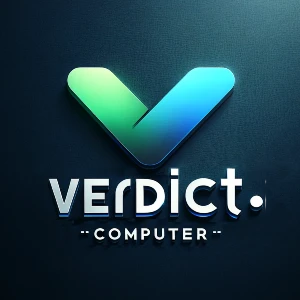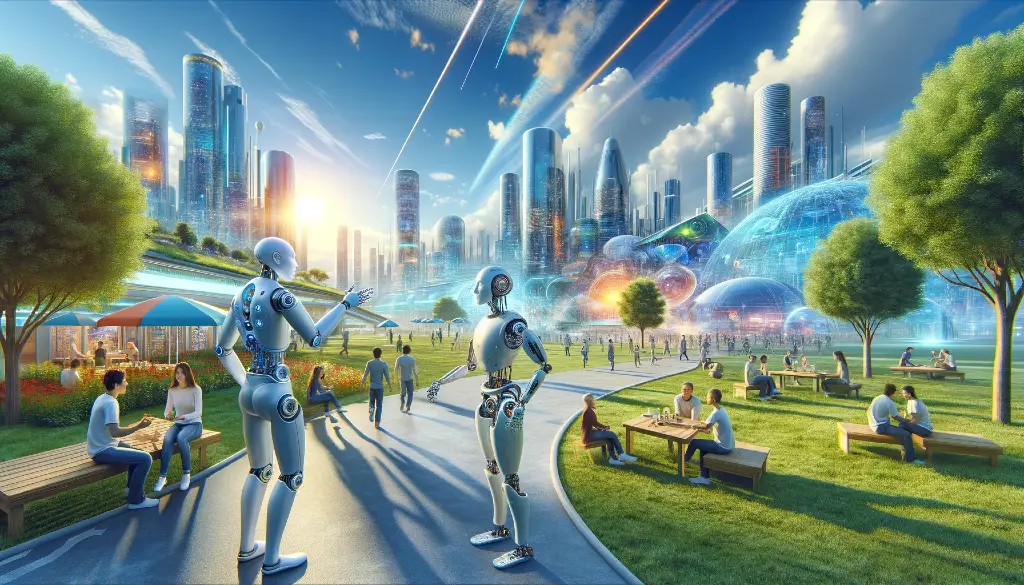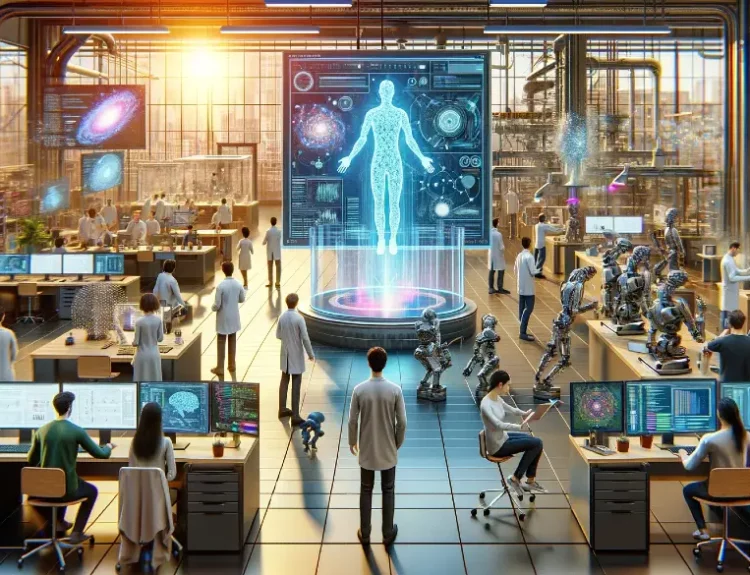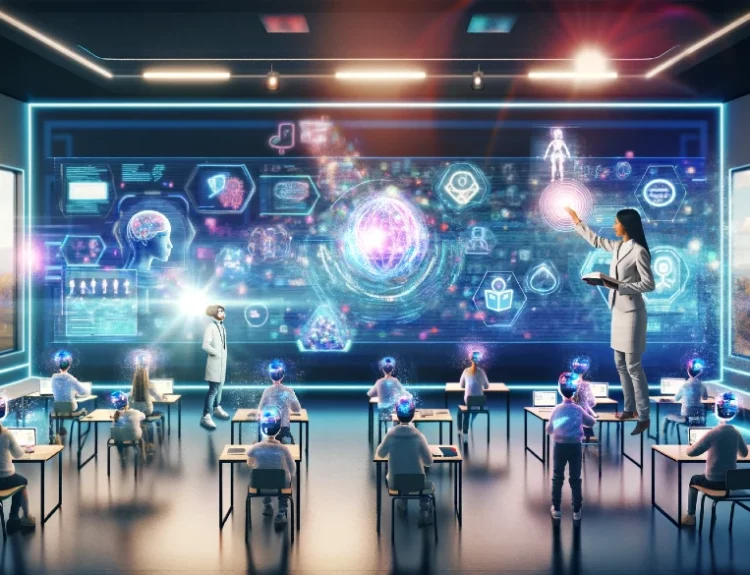- Introduction
- The Rise of AI in Computer Science Education
- AI Curriculum in Computer Science Degrees
- Benefits of Pursuing an AI-Focused Computer Science Degree
- Specializations in AI within Computer Science Degrees
- AI Applications in Computer Science Degree Programs
- The Future of AI in Computer Science Education
- Careers with an AI Computer Science Degree
- Conclusion
Introduction
The world around us is undergoing a revolution driven by Artificial Intelligence (AI). From self-driving cars to intelligent virtual assistants, AI is rapidly transforming how we live, work, and interact with technology. This transformative power has led to a surge in demand for skilled professionals who can design, develop, and implement AI solutions.
For students passionate about computer science, this presents an exciting opportunity. Universities are increasingly offering specialized AI-focused computer science degrees that equip graduates with the expertise needed to thrive in this dynamic field. Whether you’re drawn to the potential of machine learning to revolutionize healthcare or the power of computer vision to change the way we interact with machines, an AI-focused computer science degree can be your launchpad to a fulfilling and impactful career.
This blog post serves as your guide to navigating the exciting world of AI within computer science education. We’ll delve into the curriculum you can expect, explore the benefits of pursuing an AI-focused degree, and showcase the diverse career paths that await you. So, buckle up and get ready to unlock the potential of AI in your computer science journey!
The Rise of AI in Computer Science Education
For decades, computer science education has focused on core programming principles, algorithms, and data structures. This foundation remains crucial, but the landscape is evolving rapidly. Artificial intelligence (AI) is no longer a futuristic concept; it’s a rapidly growing field with real-world applications across industries.
In response to this shift, computer science education is undergoing a transformation. We’re witnessing a two-pronged approach:
- Integration of AI Concepts: Traditional computer science programs are increasingly incorporating AI topics. Courses on machine learning, natural language processing, and computer vision are becoming more commonplace. This equips graduates with a broader skillset, allowing them to tackle problems that combine traditional programming with cutting-edge AI techniques.
- Dedicated AI-Focused Programs: Universities are recognizing the immense potential of AI and are now offering dedicated AI-focused computer science degrees. These programs offer a deep dive into the theoretical underpinnings of AI along with extensive hands-on experience building and deploying intelligent systems. They cater to students who want to specialize in AI and become experts in this rapidly evolving field.
This rise of AI in computer science education reflects the growing demand for skilled AI professionals. By equipping graduates with the necessary expertise, universities are ensuring a future workforce that can harness the power of AI to solve complex challenges and drive innovation across various sectors.
AI Curriculum in Computer Science Degrees
So, you’ve decided to explore the exciting world of AI within your computer science degree. But what can you expect to learn? AI curriculums vary slightly between universities, but they generally share a core set of foundational concepts. Here’s a breakdown of what you might encounter:
Machine Learning: This forms the backbone of most AI curriculums. You’ll delve into different algorithms like linear regression, decision trees, and support vector machines. Additionally, you’ll explore techniques like supervised and unsupervised learning, along with model evaluation and optimization methods.
Deep Learning and Neural Networks: This rapidly evolving field takes center stage in many AI programs. You’ll learn about the architecture and functionality of artificial neural networks, including convolutional neural networks (CNNs) for image recognition and recurrent neural networks (RNNs) for processing sequential data like language.
Natural Language Processing (NLP): How can computers understand and generate human language? NLP courses equip you with techniques for tasks like sentiment analysis, machine translation, and chatbot development. You’ll explore text processing methods, language models, and how AI can be used to analyze and interact with natural language data.
Computer Vision: Teach computers to “see” and interpret the visual world! Courses in computer vision will explore image processing techniques, object detection and recognition algorithms, and how AI can be used for tasks like autonomous vehicle navigation and medical image analysis.
Robotics and Control Systems: AI isn’t just about software! Some programs integrate robotics, where you’ll learn about robot kinematics, control systems, and how AI algorithms can be applied to control robots and intelligent machines.
Data Analysis and Manipulation: The fuel for AI systems is data. You’ll learn about data analysis techniques, data cleaning and preprocessing methods, and how to manage and manipulate large datasets efficiently to train and optimize AI models.
Beyond the Basics: Looking to push the boundaries? Some advanced programs might introduce you to cutting-edge topics like Explainable AI (XAI), which focuses on making AI models more interpretable and transparent. Additionally, some might touch upon the theoretical aspects of Artificial General Intelligence (AGI), exploring the quest to create truly intelligent machines.
This is just a taste of what you can expect from an AI curriculum in computer science degrees. Remember, specific courses and their depth may vary depending on the program you choose.
Benefits of Pursuing an AI-Focused Computer Science Degree
Choosing an AI-focused computer science degree unlocks a multitude of advantages:
- Booming Job Market: AI is transforming industries, leading to a surge in demand for skilled AI professionals. A specialized degree positions you as a competitive candidate for exciting and well-paying careers in AI development, research, and application.
- Strong Foundational Skills: You’ll gain a solid grounding in both traditional computer science principles and cutting-edge AI techniques. This versatile skillset equips you to tackle complex problems that require a blend of foundational programming knowledge and advanced AI expertise.
- Career Flexibility: AI’s reach extends far beyond tech giants. From healthcare and finance to manufacturing and robotics, your degree opens doors to diverse career paths across a wide range of industries.
- Future-Proofing Your Career: AI is here to stay, and its influence is only going to grow. By specializing in this field, you’re investing in your future and positioning yourself for success in the ever-evolving job market.
Specializations in AI within Computer Science Degrees
Some universities offer the opportunity to delve even deeper by specializing within the vast field of AI. Here are some potential areas of specialization:
- Machine Learning Engineering: Focuses on building and deploying machine learning models in real-world applications. You’ll gain in-depth knowledge of machine learning algorithms, frameworks, and tools used to design, develop, and maintain production-ready AI systems.
- Robotics Engineering: Combines AI with robotics principles. You’ll learn about robot design, control systems, and how AI algorithms can be applied to create intelligent robots capable of interacting with the physical world.
- Natural Language Processing (NLP): Specialize in the interaction between computers and human language. You’ll delve into advanced NLP techniques for tasks like machine translation, sentiment analysis, and chatbot development, preparing you for careers focused on bridging the communication gap between humans and machines.
AI Applications in Computer Science Degree Programs
The beauty of AI in computer science education lies in its practical application. Many programs integrate real-world projects into the curriculum, allowing you to gain hands-on experience with AI concepts. Here are some examples:
- Building Intelligent Agents: Develop AI-powered agents for game development, where you’ll program agents to make decisions, learn from experience, and compete or collaborate within a virtual environment.
- Creating AI-powered Chatbots: Design and implement chatbots that can hold natural conversations with users. This might involve using NLP techniques to process user input and generate appropriate responses.
- Analyzing Large Datasets: Learn how to leverage AI for data analysis. You might work on projects that involve using machine learning algorithms to uncover hidden patterns and insights from massive datasets.
The Future of AI in Computer Science Education
The educational landscape of AI is constantly evolving. Here are some exciting trends to watch for:
- Hands-on Learning: Expect a shift towards more project-based learning, allowing students to gain practical experience building and deploying AI solutions.
- Ethical Considerations: As AI’s influence grows, ethical considerations become paramount. AI curriculums might incorporate courses on responsible AI development, bias mitigation, and the societal implications of AI technologies.
- Democratization of AI Education: Online platforms and open-source resources are making AI education more accessible than ever before. This allows students worldwide to gain valuable skills and knowledge in this rapidly growing field.
Careers with an AI Computer Science Degree
The possibilities are vast with an AI computer science degree. Here’s a glimpse into some of the exciting career paths you can pursue:
- Machine Learning Engineer: Design, develop, and deploy machine learning models used in various applications like fraud detection, recommender systems, and image recognition.
- AI Researcher: Push the boundaries of AI by exploring new algorithms, techniques, and applications.
- Data Scientist: Analyze large datasets using AI and data science tools to extract valuable insights for businesses and organizations.
- Robotics Engineer: Design, build, and program intelligent robots capable of performing complex tasks in various environments.
- Computer Vision Specialist: Develop algorithms and systems for tasks like object detection, image classification, and autonomous vehicle navigation.
- User Interface (UI) and User Experience (UX) Designer (focusing on AI integration): Design user interfaces that seamlessly integrate AI functionalities, ensuring a smooth and intuitive user experience.
This is by no means an exhaustive list, but it highlights the diverse and in-demand career paths available to graduates with an AI-focused computer science degree.
Conclusion
The world of AI is brimming with exciting possibilities, and an AI-focused computer science degree equips you to be at the forefront of this revolution. You’ll gain a strong foundation in both traditional computer science and cutting-edge AI concepts, preparing you for a future-proof career in a rapidly growing field.
Whether you’re drawn to solving complex problems in healthcare or creating intelligent robots that shape our world, an AI computer science degree opens doors to a multitude of rewarding career paths. With its emphasis on hands-on learning and real-world applications, this educational journey will be both challenging and incredibly fulfilling.
Verdict isn’t just another AI platform. We’re building a future where Artificial Intelligence (AI) – specifically Machine Learning (ML) and even Artificial General Intelligence (AGI) – evolves through real-world interactions and the collective wisdom of our community. There’s a strong connection here: Every search you perform, every conversation you have, and every piece of information you share on Verdict contributes to building an AI that understands and grows alongside you. These interactions become the building blocks for a transformative future.
We’re on a collaborative journey to develop an AI that reflects the richness of human experience. It learns from our diverse perspectives, grows from our shared knowledge, and ultimately becomes an extension of our collective intelligence. Imagine an AI that not only assists us but also learns from our interactions, constantly evolving to better reflect the complexities of the human world. That’s the future Verdict is building, and you can be a part of it.
Are you curious about how AI will continue to transform the way we work and interact with technology? Dive deeper with our insightful blog posts on “The Future of Work in the Age of AI” and “The Impact of Computer Vision on Our Lives.” Explore these resources to gain a broader understanding of the vast potential AI holds for the future!
Ready to embark on your AI journey? Research AI-focused computer science programs at universities that align with your interests. Remember, the skills you acquire will empower you to play a crucial role in shaping the future powered by AI.










